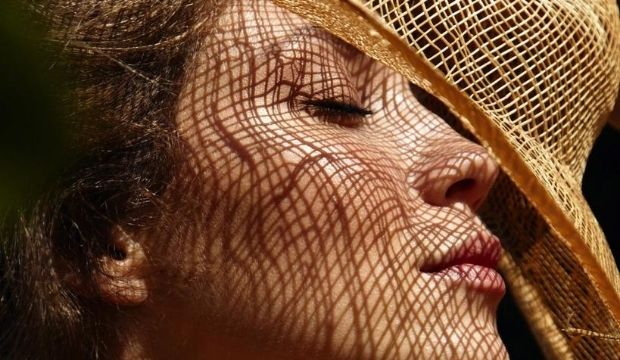SPF Guide 2020: the science behind sun cream
Here’s our easy guide on everything you ever wanted to know about your sun cream but were too busy to ask…
FIND THE RIGHT SPF FOR YOU
What does SPF really mean?
SPF stands for 'sun protection factor,' and it measures your sunscreen protection from the sun’s rays: ultra-violet A and ultra-violet B. Think of them as UVA(geing) and UVB(urning). There are also different formulations:
Physical: Physical sunscreens are formulated with active mineral ingredients, such as titanium dioxide or zinc oxide, and work by sitting on top of the skin to deflect and scatter damaging UV rays away from the surface.
Chemical: Chemical sunscreens are absorbed into the skin, which then absorbs UV rays. They work by converting the sun’s rays into heat and releasing them from the body. The active ingredients in chemical sunscreens can include avobenzone, octinoxate and oxybenzone.
What do the dermatologists recommend?
Broad-spectrum, which protects from both UVA and UVB rays, is a must, water-resistant and SPF30 or above.Is SPF50 better than SPF30?
Between an SPF30 and SPF50, there is only a small difference in the increase of protection.SPF30 blocks nearly 97% of UVB radiation
SPF50 blocks approximately 98% of UVB rays
Studies have shown we tend to re-apply less when opting for a higher factor, so whatever number you choose you must re-apply at least every two hours and after swimming and sweating.
What does ‘Reef Safe’ mean?
Some sunscreen manufacturers don’t include oxybenzone or octinoxate, and label their product ‘reef safe’. However, oxybenzone and octinoxate aren’t the only culprits that may be damaging to marine life. Several other chemicals used in sunscreens that research suggests might be a threat to coral reefs. The best way to ensure your sunscreen is safe for both corals and oceans is to check it’s ‘Certified COSMOS Natural.’ COSMOS means that an independent Soil Association body has certified that the ingredients in the sunscreen are completely natural and that manufacturing practices are clean and respectful of human health and the environment. Incognito Sun Cream has this specific certification.How long can I swim with water-resistant creams?
The term ‘water resistant’ means that the SPF is working for up to 40 minutes while swimming or sweating, and this number is almost doubled if the packaging states ‘very water resistant’.Does sun cream expire?
Yes. Throw away after three years and also if the texture or smell has changed – or else you’ll be at risk from burning.What is the best SPF for the face?
Up to 90% of skin ageing is caused by daily sun exposure – so these are the best light liquids and creams that won’t send make-up into meltdown
Glossier Invisible Shield Daily Sunscreen SPF30, £20
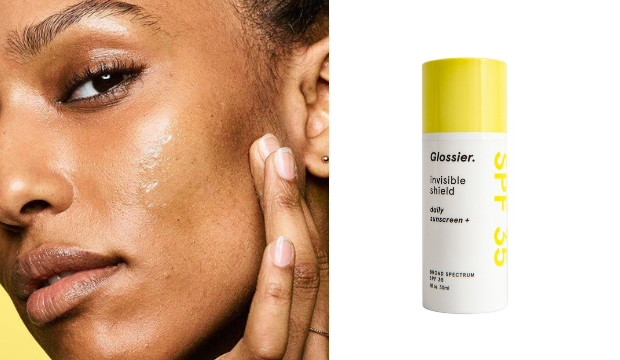
Super sheer, groundbreaking water-gel formula brilliant for black and olive skin tones.
Glossier Invisible Shield Daily Sunscreen SPF30, £20 – buy here
Dermalogica Prisma Protect SPF30, £58 at Harvey Nichols
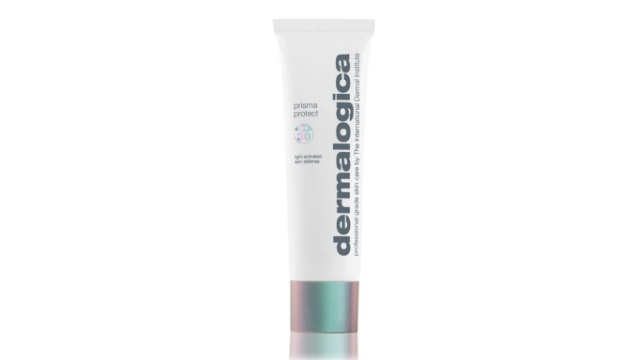
Makes skin radiate and protects as it goes.
Dermalogica Prisma Protect SPF30, £58 at Harvey Nichols – buy here
Dr. Sam’s Daily Sunscreen, £29
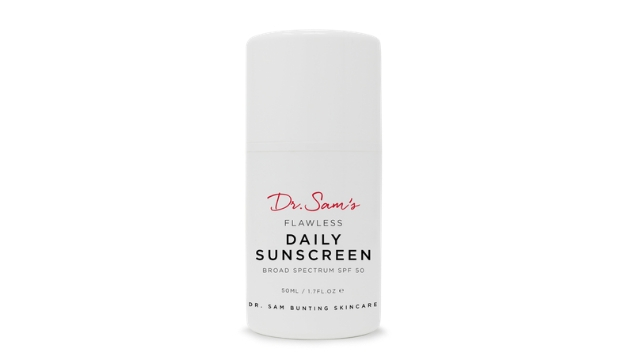
This is the best sunscreen for spotty skin. It contains 5% niacinamide to calm acne and inflammation and protects from sun damage too.
Dr. Sam’s Daily Sunscreen, £29 – buy here
Elemis Daily Defence Shield SPF30, £46
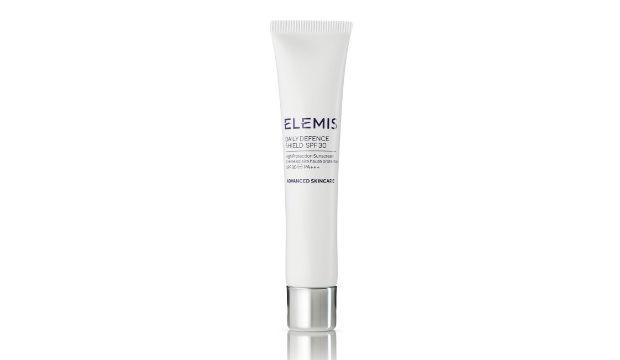
A great, weightless lotion that protects against sun and city damage and works for both men and women.
Elemis Daily Defence Shield SPF30, £46 – buy here
THE SPF POWDERS
Brush on Block Mineral Sunscreen, £25
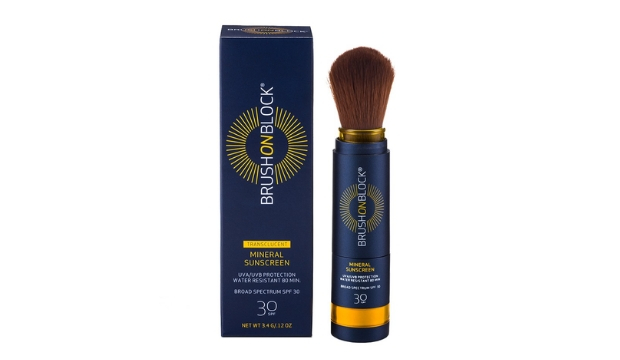
This is a genius product as it mattifies your face and also can be used as a head protector, to disguise oily roots and protect the scalp too.
Brush on Block Mineral Sunscreen, £25 – buy here
ZO Skin Health Sunscreen + Powder SPF30, £54
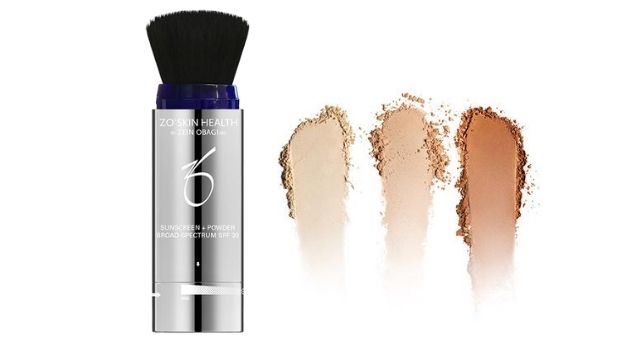
This portable stick offers free-radical, blue light and environmental protection, and is barely detectable on the skin. The perfect on-the-go cover for faces, scalps, shoulders and hands.
ZO Skin Health Sunscreen + Powder SPF30, £54 – buy here
THE BEST SPF STICK
Clarins Invisible Sun Care Stick SPF50, £19
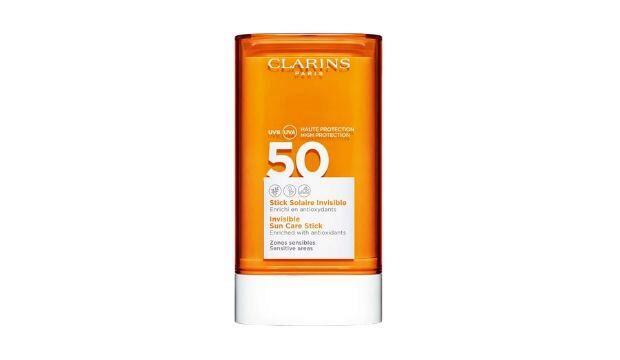
A super sheer and easy-to-apply stick that's sensitive enough to be used around the eye area on the lips or all over the face, on your children's delicate noses and other spots that have a tendency to burn.
Clarins Invisible Sun Care Stick SPF50, £19 – buy here
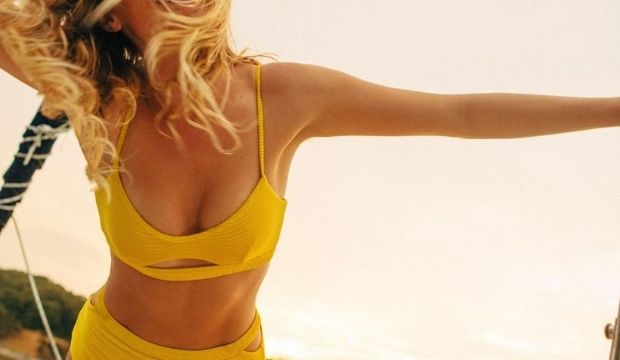
What is the best sun cream for the body?
Easy-to-use formulas protect when you’re poolside or in the parkEsthederm Adaptasun Protective Body Lotion, £44.50
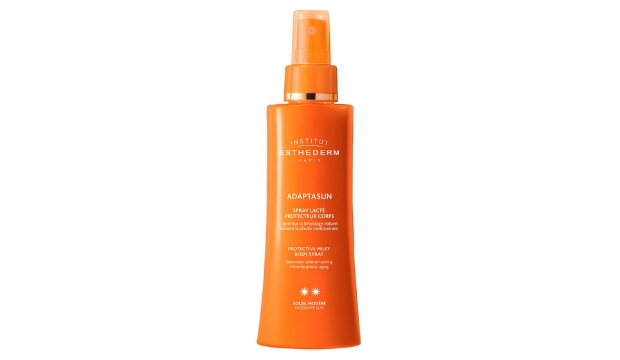
Protects DNA while boosting the natural pigmentation process.
Esthederm Adaptasun Protective Body Lotion, £44.50 – buy here
Bioderma Spray SPF50, £25

A brilliant all-rounder in a super-sized bottle so you’re not afraid to apply it liberally.
Bioderma Spray SPF50, £25 – buy here
Clarins Sun Care Oil Mist UVA/UVB 30, £22
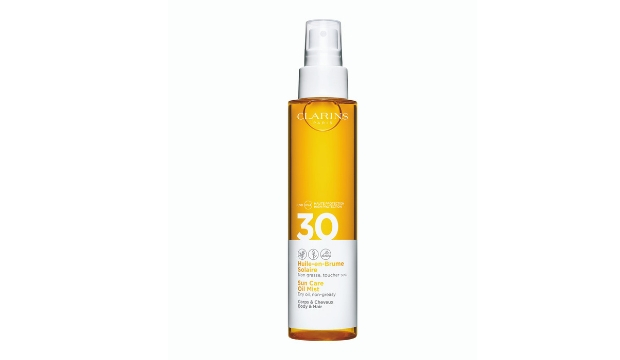
A non-greasy, luxurious spray that protects head, hair and body.
Clarins Sun Care Oil Mist UVA/UVB 30, £22 – buy here
Soleil Toujours Organic Sheer Sunscreen Mist SPF50, £32
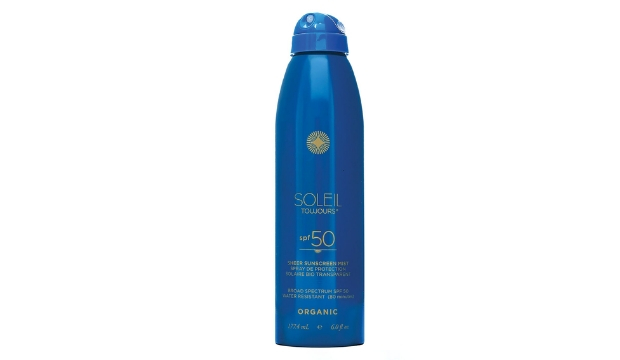
Reaches parts other SPFs don’t quite reach courtesy of the super-powered spray.
Soleil Toujours Organic Sheer Sunscreen Mist SPF50, £32 – buy here
Shade All-Natural Sunscreen, £9.95
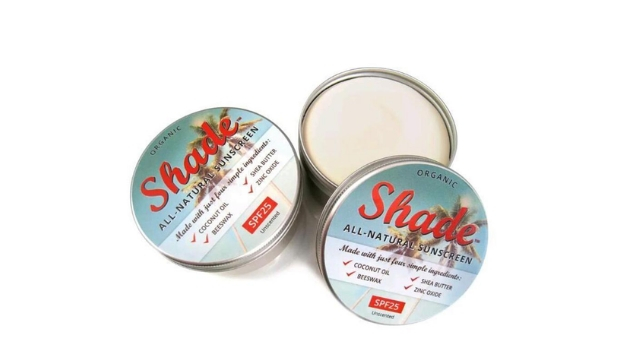 Housed in a recyclable tin, this formula uses non-nano zinc oxide, which acts as a physical barrier to the sun, reflecting it from the skin's surface. This does mean the formula won’t feel as sophisticated, with some chalkiness, but it’s perfect if you’re sensitive to mainstream chemical SPF, and are cutting down on the plastics too.
Housed in a recyclable tin, this formula uses non-nano zinc oxide, which acts as a physical barrier to the sun, reflecting it from the skin's surface. This does mean the formula won’t feel as sophisticated, with some chalkiness, but it’s perfect if you’re sensitive to mainstream chemical SPF, and are cutting down on the plastics too. Shade All-Natural Sunscreen, £9.95 – buy here
Incognito Sunscreen & Insect Repellent SPF30, £20.95
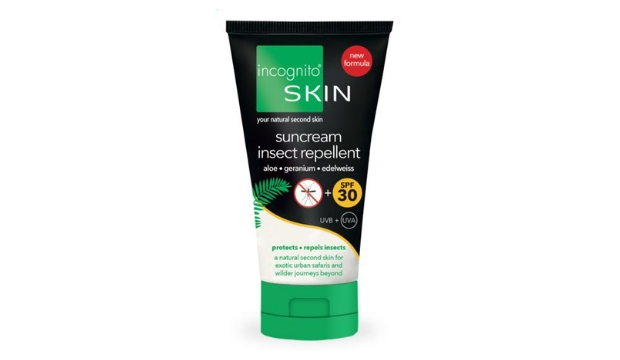
The three-in-one formula protects against insect attacks, the sun and also ups your moisture levels too. Plus it comes in sugar-cane plastic, which has a positive carbon footprint and is 100% recyclable.
Incognito Sunscreen & Insect Repellent SPF30, £20.95 – buy here
Lastly, what ingredients should you avoid?
Beware of oxybenzone, avobenzone, octisalate, octocrylene, homosalate and octinoxate, which can bleach corals and some of these chemical filters are hormone disruptors.
With thanks to Howard Carter suncare expert, and CEO of Incognito.
TRY CULTURE WHISPER
Receive free tickets & insider tips to unlock the best of London — direct to your inbox
